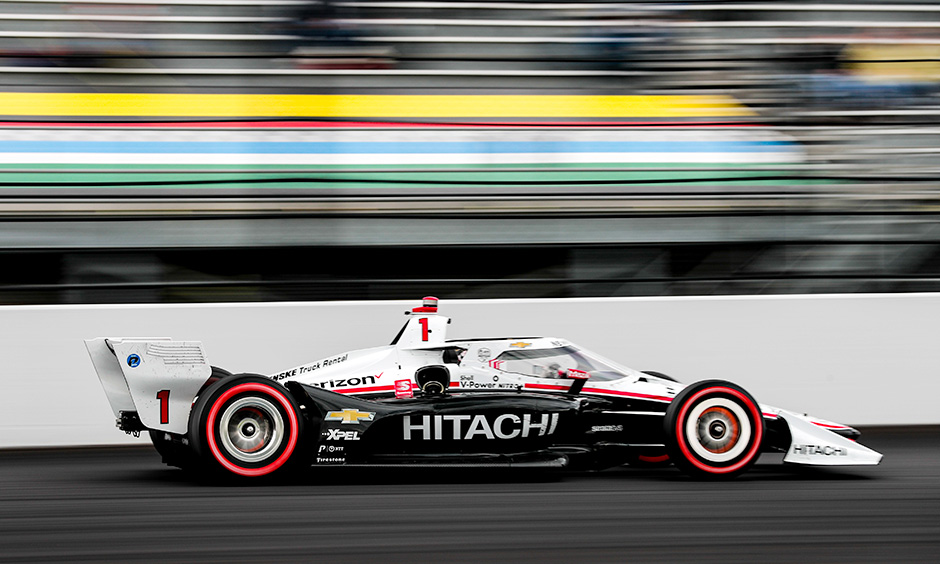2023 Writers’ Roundtable, Vol. 47: Should Champ Drive No. 1?
NOV 29, 2023
Today’s question: It’s a longstanding tradition in some forms of motorsport for the previous season’s champion to use vehicle No. 1 in the following season. Some INDYCAR SERIES drivers have done that; some have not. Do you think the reigning NTT INDYCAR SERIES champion should drive car No. 1 the following season?
Curt Cavin: For years, I enjoyed when the reigning champions used No. 1, but in retrospect I was thinking simply as a fan of the sport. Back then, I thought casual viewers of the broadcast would appreciate and respect the accomplishment of the car carrying that number, but over the years I’ve come to see things differently. I now see the car not as the reigning champion but as a representation of a successful small business. For all the assets a team possesses, the car is one of its best. Its bodywork is the showplace for the financial commitment companies have made to this small business, and those dollars are critical to putting the team in position to defend its title. I suppose the realization came for me in 2012 when Chip Ganassi Racing used No. 50 for Dario Franchitti’s car in the Indianapolis 500 to celebrate Target’s 50th anniversary. In many respects, the number was confusing because it was off brand from the No. 10 the team had used so effectively over the years. For me, it drove home the significance of brand equity and how a race team can and should capitalize on what it has built. In today’s NTT INDYCAR SERIES, that’s Scott Dixon’s No. 9, AJ Foyt Racing’s No. 14 and all the numbers used by Team Penske, Andretti Global, CGR, Dale Coyne Racing and the rest. If a team decides it’s more beneficial to celebrate its championship with use of the No. 1, fine. But that should – and is – a team decision that I respect either way.
Eric Smith: I get both sides of the coin here, but I’m more inclined and in favor of the reigning champion donning the No. 1 for their championship defense than the alternative. They’ve earned that right, and I would love it to be seen again as an honor to race that number. As hard as these championships are to win in this series, the winning driver has earned a 17-race victory lap tour, and this is a great way to honor and publicize that. Plus, the branding and marketing of No. 1 is another angle this series could capitalize on. I think back to the battle on and off track that Josef Newgarden and Simon Pagenaud had for the honor of racing the No. 1 a few years ago. It was a fun story line each race. It would also be an easy way to sell some new merchandise with the No. 1 incorporated to that driver’s fan base. The creativity of “defending the 1” and those trying to capture it sells itself.
Paul Kelly: Anyone who knows me understands I have a pointed opinion on everything, so this will be a rare instance in which I straddle the fence: I don’t care if the champion carries No. 1 on their car the following season or stays with an existing number. I can see compelling reasons for using the 1 or continuing with an existing number. No. 1 is a perk of winning the championship and is a nice way to show the rest of the field and fans who was the best in the previous season. But much like I say, “Every writer’s best story is their next one,” shouldn’t the focus be on the current season rather than previous accomplishments? You’re only as good as your next race, right? Plus, I see the commercial value of keeping the same number for an entire career, such as branding, merchandising and easy recognition for fans. For example, Valentino Rossi never changed his number from 46 after winning seven MotoGP premier-class championships because when you saw that stylized, yellow 46 sticker anywhere, you knew that person was a fan of “The Doctor.” I like that. But there is one aspect of this fun debate about which I’m firm as granite: The decision to carry No. 1 or continue with an existing number should be made by the driver/rider or team and NEVER should be mandated by a sanctioning body.



















